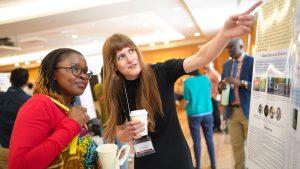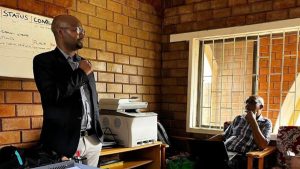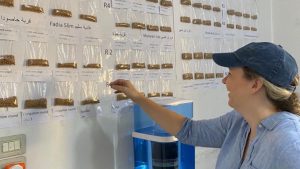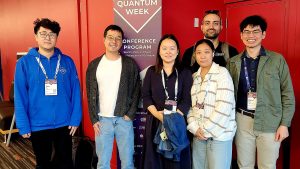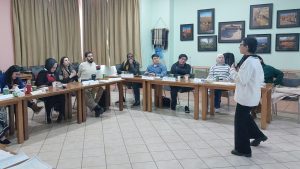Graduate School of Arts and Sciences
Transformative Teaching, Research, and Service
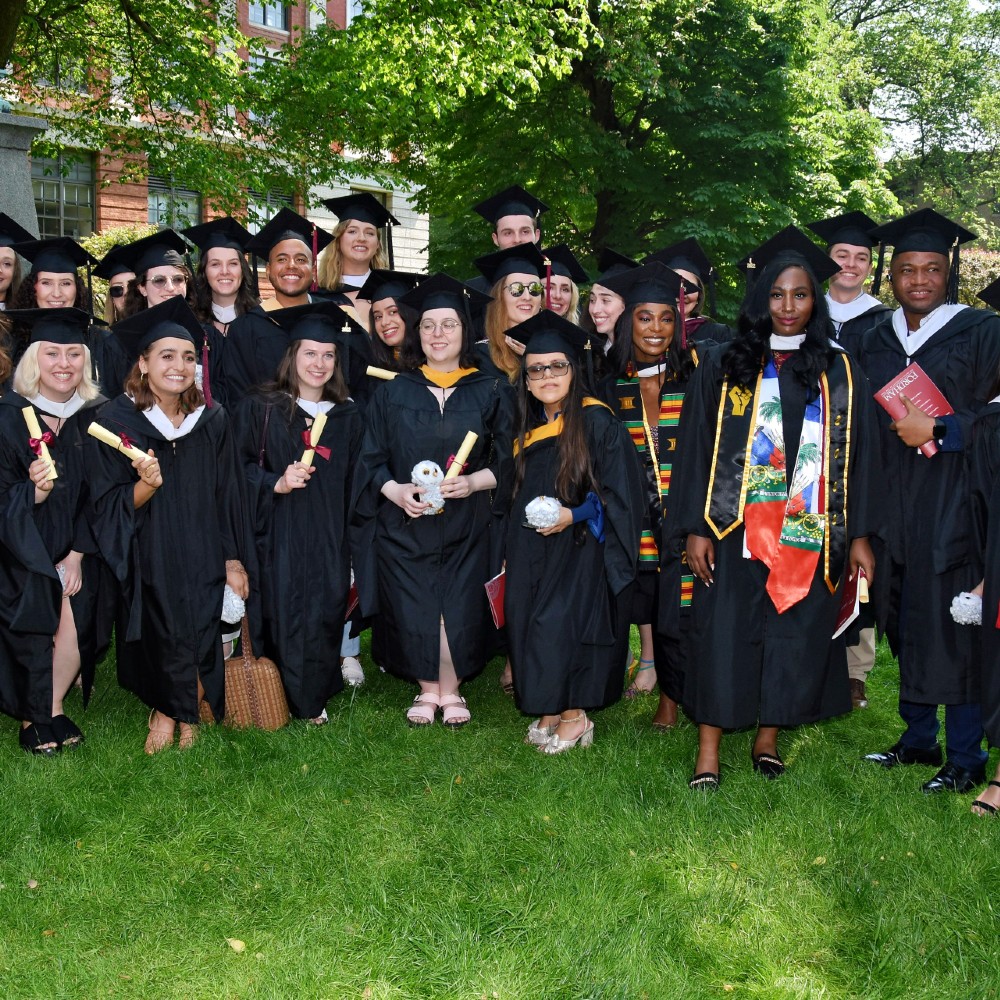
Whether in the sciences, the arts, or the humanities, graduate education at Fordham shares a distinctive signature: a belief in the transformative power of inquiry for its own sake, an impatience with conventional academic boundaries and frameworks, and an insistence that change must move humanity forward.
Here, you will be part of an institution that believes knowledge becomes wisdom only when guided by moral principles, where:
- Faculty are approachable and caring, as well as distinguished scholars who manage tens of millions of dollars in grant awards and publish approximately 500 monographs, books, book chapters, and articles each year.
- You will have the opportunity to invest in others in ways that foster the development of skills that cannot be learned in the laboratory or library alone, including professional development workshops, professional conferences, and undergraduate teaching in your respective field of study.
Academic Programs
As a student at Fordham University’s Graduate School of Arts and Sciences (GSAS), you will have access to world-class faculty and a premier research institution. We offer over 40 graduate programs in a broad range of disciplines; and while GSAS is mainly housed at Fordham's Rose Hill campus in the Bronx, NY, we do offer a variety of classes at our Lincoln Center campus in Manhattan - depending on your program of choice.
Student Professional Development

Our mission is to ensure that graduate students possess the skills and knowledge that will allow them to leverage their vocational training and academic experience in a professional setting.
GSAS Futures is a holistic professional development initiative that promotes career pathway preparation for our students across the arts and sciences.
One of the benefits of undertaking a Ph.D. at Fordham is the extensive teaching training and experience in which you have the opportunity to participate during the course of your program through our Preparing Future Faculty (PFF) program.
What's Your Three Minute Thesis?
Created to help students develop presentation and research communication skills and open to all students enrolled in a GSAS master’s or doctoral program, the Three Minute Thesis (3MT®) is a research communication competition where contestants have three minutes to present compelling orations on their thesis or dissertation research, and its significance and value.

Congratulations to the Winners of the 2025 Three Minute Thesis Competition!
- First Place Winners:
Ridwan Hossain, Economics, Ph.D. Candidate
Unlocking Student Potential: The Role of Incentives in Education
Medha Pandey, Biological Sciences, Ph.D. Candidate
Clingy Hitchhikers: The Role of Birds in the Maintenance and Dispersal of Ticks and Tick-Borne Diseases
Saathvika Rajamani, Biological Sciences, Ph.D. Candidate
Neurodegeneration Associated with a tRNA Processing Enzyme in Drosophila
Katherine Theiss, Economics, Ph.D. Candidate
Uncounted: How Survey Implementation Methods Miss 3 Million Annual Cases of Intimate Partner Violence (IPV) Worldwide
- Second Place Winner:
Nashrah Haque, Computer Science, M.S. Candidate
AI is Deciding Who Gets Hired: Can We Make It Fair? - Third Place Winner:
Hyunjung Lee, Psychometrics and Quantitative Psychology , Ph.D. Candidate
What Shapes 8th Graders’ Math Success? The Role of School Climate - People's Choice Winner:
Medha Pandey, Biological Sciences, Ph.D. Candidate
Clingy Hitchhikers: The Role of Birds in the Maintenance and Dispersal of Ticks and Tick-Borne Diseases
-2400X1000.jpg, https://pxl-fordhamedu.terminalfour.net/fit-in/750x500/prod01/channel_2/media/home/commonly-used-images/campus-beauty/AApolinario-20181107-0003-(1)-2400X1000.jpg 0.33x, https://pxl-fordhamedu.terminalfour.net/fit-in/1000x667/prod01/channel_2/media/home/commonly-used-images/campus-beauty/AApolinario-20181107-0003-(1)-2400X1000.jpg 0.5x, https://pxl-fordhamedu.terminalfour.net/fit-in/1500x1000/prod01/channel_2/media/home/commonly-used-images/campus-beauty/AApolinario-20181107-0003-(1)-2400X1000.jpg 1.5x, https://pxl-fordhamedu.terminalfour.net/fit-in/2500x1667/prod01/channel_2/media/home/commonly-used-images/campus-beauty/AApolinario-20181107-0003-(1)-2400X1000.jpg'])




